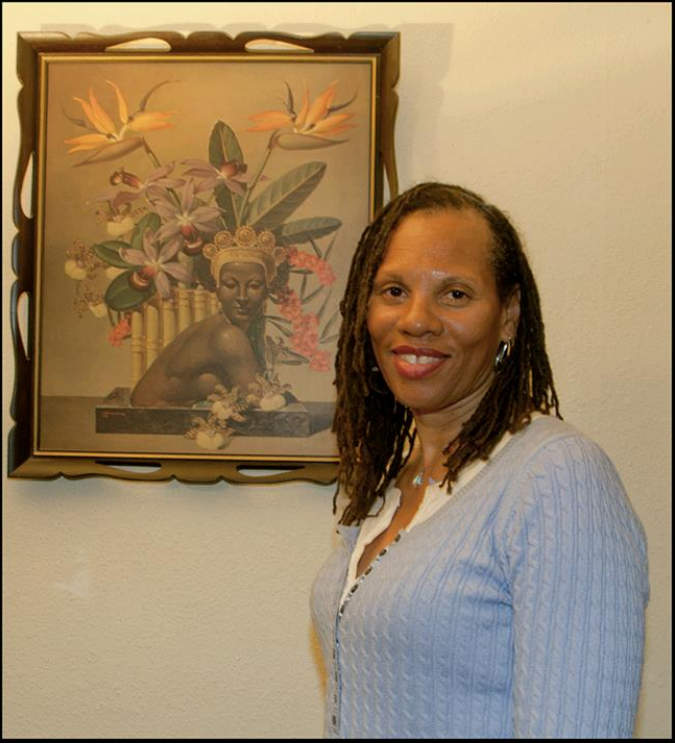Karen Collier retired from public service in 2009, having worked in the Denver District Court as a court stenographer for 30 years. Since then, she has worked as an Alpine Ski Instructor in Winter Park and Granby, Colorado, instructing differently-abled and abled-bodied youth and adults in the methods of Alpine skiing. She currently works as a Tennis Coach for the City and County of Denver with the Summer Youth Tennis Camp. Karen volunteers One Colorado Education Fund, whose mission is to secure and protect equality and opportunity for Lesbian, Gay, Bisexual and Transgender Coloradans and their families. She volunteers as a Prevention Education Specialist, providing HIV, STD and pregnancy prevention to adolescents. She also volunteers with Monaco Parkway Health and Rehabilitation Center as Coordinator for Social Events and her church, Park Hill Congregational United Church of Christ, serving dinner at the Senior Resource Center.
A part of the Chinook community many years, Karen is deeply connected to social justice in Colorado and recently accepted the nomination to become a Co-chair of the Grantmaking Committee and she has proved herself to be a true leader this past cycle, making tough and compassionate choices.
We sat down with Karen to have a conversation about social justice movements, Chinook Fund, and why she is so passionate about community building. Karen initially joined the Grantmaking Committee (GMC) 20 years ago at the request of an individual who volunteered for an organization she was working for, Alpha Life Colorado. Initially as a favor for a friend, Karen’s involvement with Chinook Fund has evolved into a long term commitment; her draw to Chinook is the grassroots nature of the work we do, supporting organizations that are cut off from traditional funding streams.
How do you keep the energy to continue to do the work that you do?
“You know, a big push in terms of energy is seeing the kinds of organizations that apply for Chinook money, reading the proposals documenting the plans that they have to implement social change. It’s fascinating to watch the evolution of that process in how to affect social change.”
Why is the GMC relevant to social justice organizing in Colorado ?
“I think the GMC and Chinook on a larger scale are vital to the continuation of basically seeding non-profit organizations that pursue social justice. We don’t have the conventional funding streams available to those nonprofits initially when they start up. My history with Chinook has been watching organizations grow from being a start up to outgrowing our funding, and that’s really cool to see that happen but it is important that it be known the Chinook exist for organizations who don’t have a great amount of access with convention funding sources to be able to come to Chinook to get the money they need to get started.”
What is your role in movement building in Colorado?
“I do a small part in the role of implementing and pushing the envelope for social change through my involvement with Chinook and my role is involved in funding and being involved with social change agents in the community; I appreciate the other people who sit at this table and I’m honored to be a part of the GMC.”
What trends have you noticed in the types of grantees you have seen over the years?
“[S]omething that is kind of near and dear to my heart is food justice. We are becoming aware of the contamination that exists in our food supply and how a lot of the major corporations running the country are responsible fro a lot of what we see in terms of contamination and regulation. The push to have less and less government involvement with our food production, so I am very happy to see nonprofits focused on partnering with the community to have farms and community gardens and teaching our youth how to farm and cultivate our food without having to rely heavily on grocery story chains.”
Which Grantee comes to your mind as inspiration and example of what we do at Chinook in your tenure in the GMC?
Eastside Growers is a nonprofit that I think exemplifies the ingenuity and intellectual push to get the public to focus on the importance of food justice and they do a lot in terms of imparting information regarding gardening and the importance of that to our youth so it perpetuates itself into the future. “I would encourage those reading this to examine how they can become involve in the greater good of the planet and humanity and to consider working with Chinook as a volunteer as way of exercising the right to be involved in their communities.”

